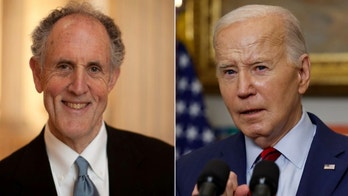The Pentagon released a 134-page report Tuesday tracking the progress and challenges over the past six months in Afghanistan.
Officially titled the "Report on Progress toward Security and Stability in Afghanistan," the congressionally mandated document cost taxpayers $207,000 to produce and concludes that there is a "continuing decline in year-over-year violence."
The report says Afghan and NATO operations, "complemented by Special Forces targeting, continue to steadily degrade the influence and the operational capacity of the insurgency." It also says the insurgency failed to gain any momentum after a poor summer campaign in 2011.
And the report pointed to a decreasing number of violent attacks "After five consecutive years in which enemy-initiated attacks increased sharply, enemy-initiated attacks decreased by 9 percent in 2011 compared to 2010, and decreased by 16 percent in 2012 (as of the end of this reporting period) compared to 2011," the report says.
Like in each of the progress reports before it, the Pentagon acknowledged "long-term and acute challenges," such as insurgent sanctuaries in Pakistan and limited capacity of the Afghan government.
Noticeably absent in the list of those challenges were the so-called "green on blue attacks" -- attacks by Afghan security forces against their U.S. and NATO mentors who trained them. Just last weekend, an Afghan elite Special Forces soldier shot and killed his U.S. Special Forces mentor and translator.
The report says from May 2007 to March 2012, 86 civilian and military coalition personnel were killed in these types of attacks, and another 115 wounded. That's more than all the casualties suffered by France. It's also a number that would account for nearly 3 percent of all coalition deaths. Yet the report describes them as "rare" and having "resulted in a relatively small number of casualties."
Meanwhile, President Obama arrived in Afghanistan Tuesday, exactly one year to the day after Navy SEALS killed Osama bin Laden in a daring night raid inside Pakistan. The White House says his trip won't focus on that, but instead it is designed to solidify a Strategic Partnership Agreement, which both Afghan President Hamid Karzai and Obama have already signed.
According to a senior U.S. official, the agreement is a long-term framework that outlines the nature and character of the U.S.-Afghan relationship after forces' withdrawal at the end of 2014.
It will not outline some of the harder decisions to come, such as the amount of money NATO will commit to Afghan security forces after it leaves. Nor will it address legal immunity for troops or mission capabilities post-2014.
Officials in Washington told Fox News that difficult lessons were learned during the Iraq withdrawal -- mainly that negotiations for post-war relationships needed to start earlier. This agreement starts that process, officials say.
After the signing ceremony with President Karzai inside the presidential palace, Obama spoke to a large group of troops at Bagram Airfield. "We did not choose this war," he told them. "This war came to us on 9/11." And, he said, "when you get home we are going to be there for you."




